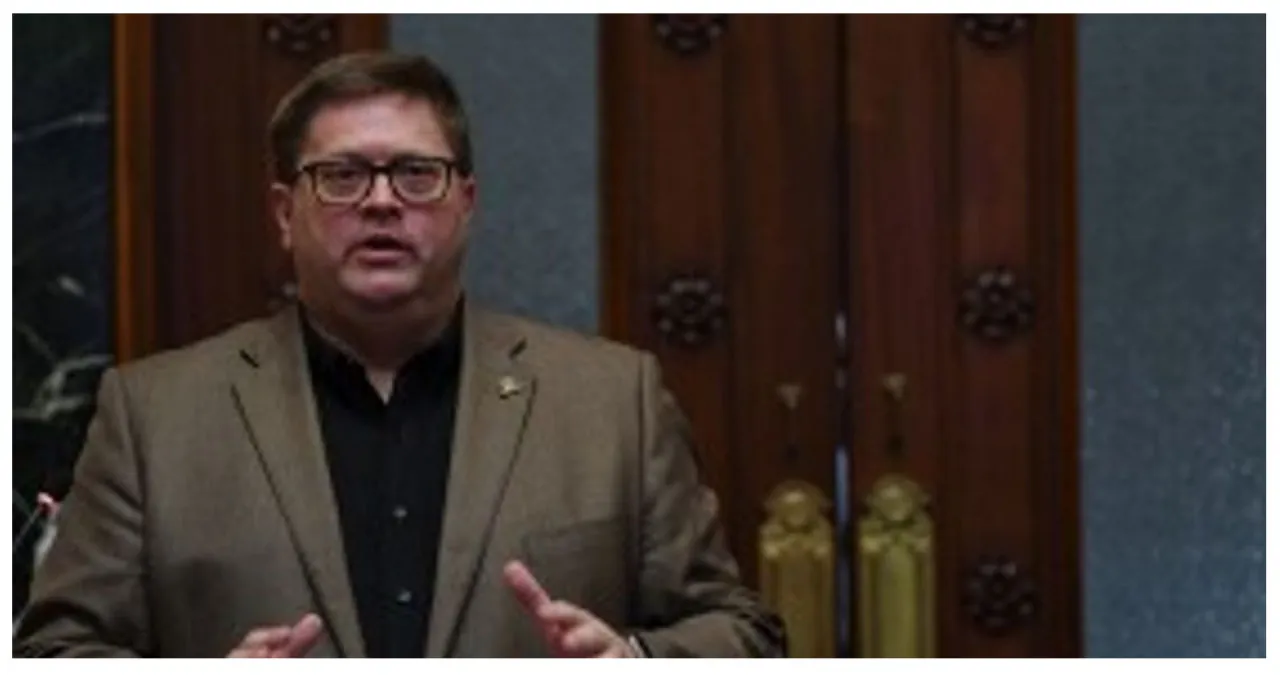Kentucky classrooms are currently facing a shortage of teachers, leading to a desperate search for more educators. To address this issue, a committee of state lawmakers has recently given their approval to a measure that aims to lower the education requirements for substitute teachers.
Current law mandates that substitute teachers must possess a bachelor’s degree or a minimum of 64 hours of college credit. However, House Bill 387 proposes a significant change to these requirements. If passed, substitute teachers would only need a high school diploma or its equivalent, such as a GED.
Republican Rep. Timmy Truett, the sponsor of the bill, serves as the principal of McKee Elementary in Jackson County. During a testimony before the House Education Committee, he highlighted the challenges his school faced when they had to manage with only nine teachers and no substitute teachers available. Truett expressed his desire to bring in retired school secretaries or other community members to assist, but they were unable to do so due to the lack of required college credits.
Truett expressed his desire to have various individuals in his building, but unfortunately, they are unable to join due to the lack of 64 hours.
Under HB 387, individuals who possess a high school diploma would qualify for a one-year emergency substitute certification. However, they would still be required to undergo background checks.
Substitutes with higher qualifications would have their certification extended under the proposed measure.
All committee members unanimously approved the measure, although a few lawmakers expressed their belief that age requirements should be imposed on substitutes.
Lexington Republican Representative Killian Timoney, who also serves as an administrator in Fayette County Public Schools, expressed his support for the measure. However, he acknowledged that it conflicted with his personal beliefs regarding the qualifications of educators.
Timoney stated that he would have been opposed to this if there wasn’t a shortage of teachers and substitutes at the moment.
According to Timoney, the measure is merely a temporary solution to the bigger issue of the teacher shortage.
“We will continue to address these issues by implementing meaningful changes that attract dedicated teachers to the profession. This includes offering competitive pay, ensuring their safety and security, maintaining high standards, and implementing fair and accurate accountability measures that accurately reflect the state of our schools,” he emphasized.
On Tuesday, the committee gave its approval to a resolution that aims to establish a task force. This task force will be responsible for studying Kentucky’s funding formula for public schools, which is commonly referred to as the Support Education Excellence in Kentucky (SEEK) fund.
In response to a 1989 Kentucky Supreme Court decision that deemed unequal funding among districts a violation of the state constitution, SEEK (Support Education Excellence in Kentucky) was created as part of the 1990 Kentucky Education Reform Act. SEEK aims to level the playing field by equalizing school funding across districts with varying tax bases.
Truett, the sponsor of the resolution, expressed his hopes to LPM News that the proposed task force would explore ways to modify the SEEK formula in order to allocate more funding to schools. One of the primary goals would be to secure additional resources for teacher raises.
“I want to ensure that we have a formula that is effective for every district,” he stated.
According to a recent report by the progressive Kentucky Center for Economic Policy, the gap in funding between the poorest and richest districts has actually widened, even under SEEK, compared to the levels seen in 1989.
The lack of overall investment by state lawmakers into SEEK was identified by the study authors as the primary reason for its ineffectiveness, rather than the formula itself.
Both HB 387 and the resolution from the SEEK task force are now making their way to the House floor.
In 2021, legislators formed a task force with a similar purpose. The School Funding Task Force, in the same year, presented nine recommendations. One of the key suggestions was a shift from an attendance-based funding model to an enrollment-based funding model for SEEK.
The task force also suggested that districts’ transportation costs should be fully funded and that full-day kindergarten should be permanently funded.
Currently, state law mandates that lawmakers fund only a half-day of kindergarten for each child. The remaining portion is covered by districts using local funds, and in some cases, families are charged kindergarten fees to bridge the gap. However, since 2021, lawmakers have been providing temporary funding for a full day of kindergarten.
The House has passed a budget proposal that includes funding for full-day kindergarten in the upcoming budget cycle. Additionally, it aims to fully fund districts’ transportation costs by 2025, marking the first time since 2005 that such funding would be provided.
Read More:
- Colorado man receives over 2 years in federal prison for pleading guilty to gun crime
- Understanding California’s Knife Laws and Penalties for Assault With a Deadly Weapon

